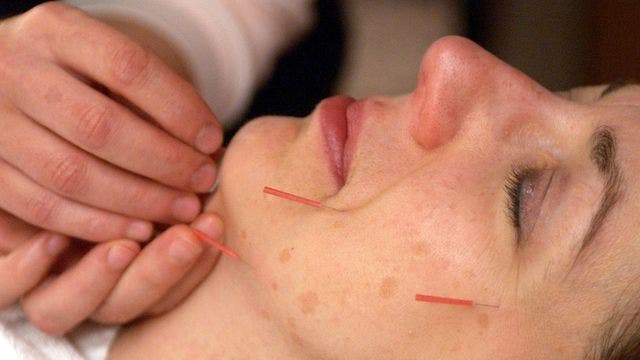More Americans using acupuncture for common ailments
Published May 15, 2012
FoxNews.com
A new survey demonstrates increasing acceptance and utilization of acupuncture for treatment and health promotion. The analysis was published in the journal Evidence-Based Complementary and Alternative Medicine and looked at utilization rates, demographics and reasons for using acupuncture. Overall, the researchers found that between 2002 and 2007 there was a significant increase in the number of patients using acupuncture.
The study is based on results of the 2007 National Health Interview Survey, a series of questionnaires prepared and collected by the U.S. Census Bureau. For over 50 years, the survey has monitored the health of the nation and tracked health status and health care access. In 2007, over 29,000 households responded, totaling more than 75,000 individual responses.
Overall, the study found that six percent of Americans are using or have used acupuncture as part of their health care — over 14 million users, up from 8 million in 2002. The growth is remarkable considering that less than one percent of the population reported trying acupuncture in the last two decades.
While traditionally, acupuncture has been used as a complementary or alternative treatment, this report uncovered a growing population of people using acupuncture to promote general health.
Acupuncture dates back more than 2,500 years to Chinese doctors who believed that illness was due to imbalances in energy. Acupuncture was thought to stimulate the body’s meridians, or energy-carrying channels, to correct these imbalances and restore health. Some doctors believe that these benefits are derived from the proximity of acupoints with nerves. Stimulation of these points causes nearby nerves to release signal molecules, called endorphins. Endorphins are well known to suppress the sensation of pain.
Pain control is a widely accepted use for acupuncture. The practice was first introduced to the United States in the 1970s following President Nixon’s visit to China. As part of the visit, the President toured medical facilities, where acupuncture was widely used. During the trip, one of the reporters required an emergency surgery and received acupuncture for post-operative pain. He found the treatment very effective and wrote about his experience upon arriving home.
In addition to post-operative pain, acupuncture has been used to treat an array of ailments ranging from headaches and chemotherapy-induced nausea to joint pain. In fact, the American College of Rheumatology, a major organization for medical professionals that treat arthritis and other musculoskeletal diseases, endorses the use of acupuncture for chronic pain.
If you are considering acupuncture, it is essential to find a reliable and qualified practitioner. Check with your physician to see if acupuncture is right for you based on your medical history and to see if he or she can refer you to a specific practice. This is especially important given that fact that needles are used.
It is important to keep in mind that most treatments take time before experiencing results, so allow for a few appointments before deciding if acupuncture works for you. Some insurance companies will pay for acupuncture, so consult your provider to see if you are covered.
Dr. David B. Samadi is the Vice Chairman of the Department of Urology and Chief of Robotics and Minimally Invasive Surgery at the Mount Sinai School of Medicine in New York City. He is a board-certified urologist, specializing in the diagnosis and treatment of urological disease, with a focus on robotic prostate cancer treatments. To learn more please visit his websites RoboticOncology.com and SMART-surgery.com. Find Dr. Samadi on Facebook.


No comments:
Post a Comment